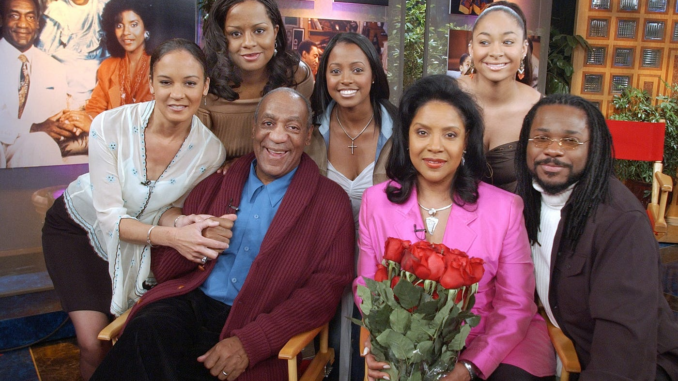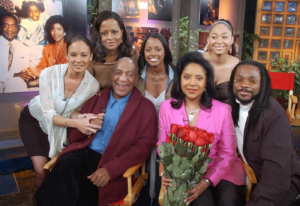
In a world where public figures are often judged solely by their personal flaws, it’s easy to forget the profound cultural impact they may have had. Few shows embody this paradox as strikingly as The Cosby Show, the iconic sitcom that aired from 1984 to 1992. At its peak, it wasn’t just a television show—it was the heart of American entertainment, a beacon of family values, humor, and cultural representation. While the controversial actions of its creator and star, Bill Cosby, have tainted its legacy, it’s essential to remember the show’s lasting significance. We were right to love The Cosby Show, and here’s why.
A Groundbreaking Cultural Milestone
When The Cosby Show first graced our screens, it shattered expectations. In an era where Black families were largely invisible in primetime sitcoms, let alone portrayed as educated, affluent, and successful, The Cosby Show was revolutionary. The Huxtables, a wealthy, professional family with both parents—Heathcliff and Clair—being doctors, defied every stereotype about African-American life. This wasn’t just a show about race; it was a story about universal family experiences—adolescence, marriage, ambition, and parenting—all viewed through the lens of Black excellence.
The show’s portrayal of the Huxtables as loving, well-educated, and successful changed the narrative. The Cosbys weren’t simply characters on a screen—they were a vision of what was possible, offering a new lens through which viewers could see Black families. The show’s ability to balance humor with thoughtful depictions of real-life challenges made it resonate with a diverse audience, forging connections with viewers from all walks of life.
The Lasting Cultural Influence
The Cosby Show’s cultural impact stretched far beyond the confines of television. It became a symbol of what was possible for African-American families on screen, paving the way for later shows such as The Fresh Prince of Bel-Air, Living Single, and Black-ish. It launched the careers of several actors, including Keshia Knight Pulliam, Malcolm-Jamal Warner, and Tempestt Bledsoe, who showed young viewers that success in Hollywood was within reach, regardless of their background.
For African-American audiences, The Cosby Show was a revelation. For the first time, a Black family was portrayed as positive, successful, and aspirational. It provided a voice to a community long relegated to negative or underrepresented portrayals in mainstream media. The Huxtables’ story was one of triumph, a testament to the power of education, hard work, and love—and it gave a new generation the confidence to dream big.
The Challenge of Separating Art from Artist
It’s impossible to ignore the disturbing reality that Bill Cosby, the man behind the show, is a convicted criminal whose actions have caused immeasurable harm. His legacy as an individual is undeniably tarnished by his crimes, and these cannot—and should not—be overlooked. However, the cultural value of The Cosby Show transcends its creator. The show’s portrayal of a loving family, its celebration of education and ambition, and its impact on the representation of Black life in media remain meaningful and important.
As we reflect on The Cosby Show, it’s crucial to distinguish between the show and the person who created it. The show brought laughter and joy to millions, sparked important conversations about family and race, and gave voice to stories that had long been marginalized. The Huxtables will remain beloved characters to many, embodying an era of television that, for all its complexity, offered an authentic portrayal of Black life—dignified, multifaceted, and full of promise.

A Legacy That Lives On
Despite the complicated conversation that surrounds The Cosby Show today, we must not forget the positive legacy it left behind. It was a groundbreaking show that broke down barriers, defied stereotypes, and showcased the values of family, love, and ambition. It proved that Black families could be just as aspirational, successful, and loving as any other family on television.
Ultimately, we weren’t wrong to love The Cosby Show. Its portrayal of Black excellence, its focus on strong family values, and its universal themes continue to resonate. While we must acknowledge the darkness that came to light later, we can still cherish the good it brought into the world. The Cosby Show gave us humor, heart, and a lasting influence that will continue to shape television for years to come.
